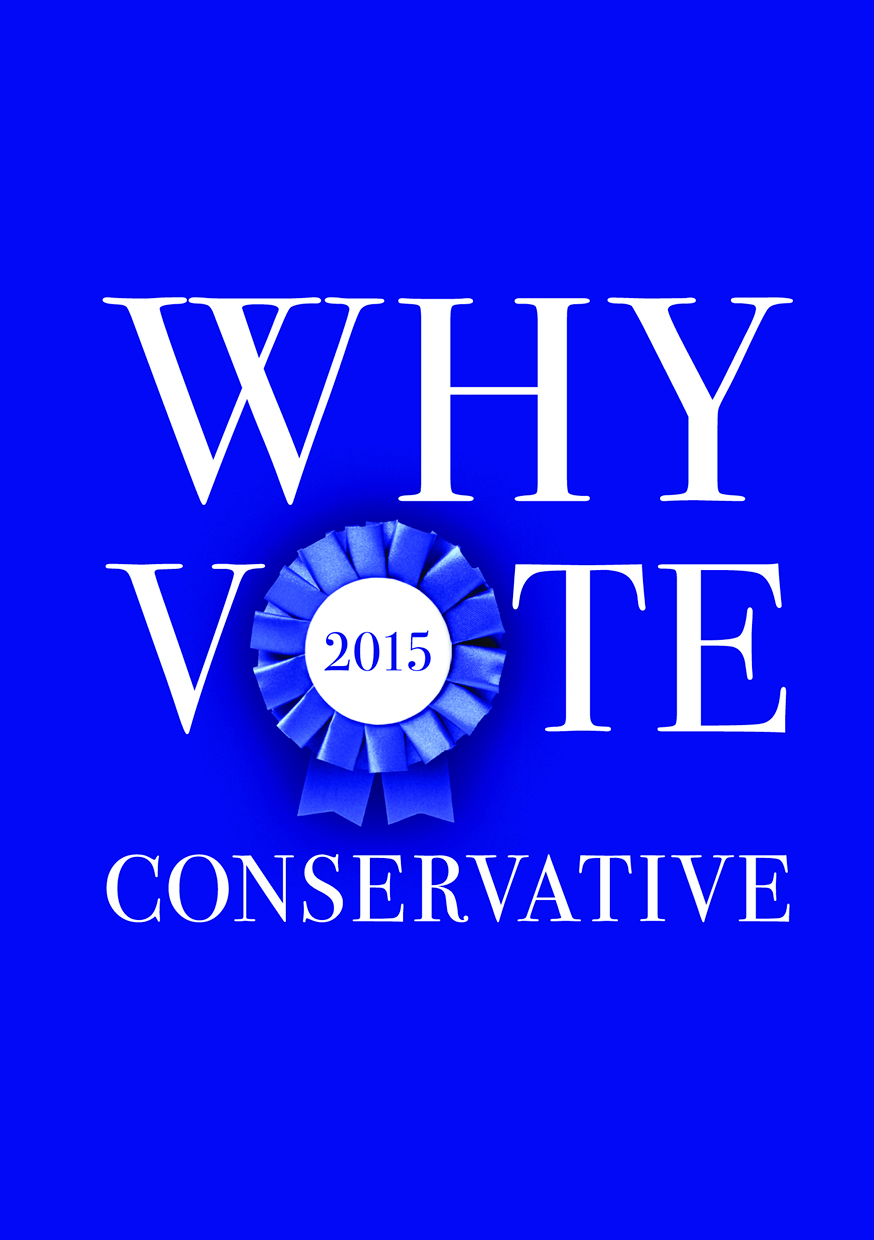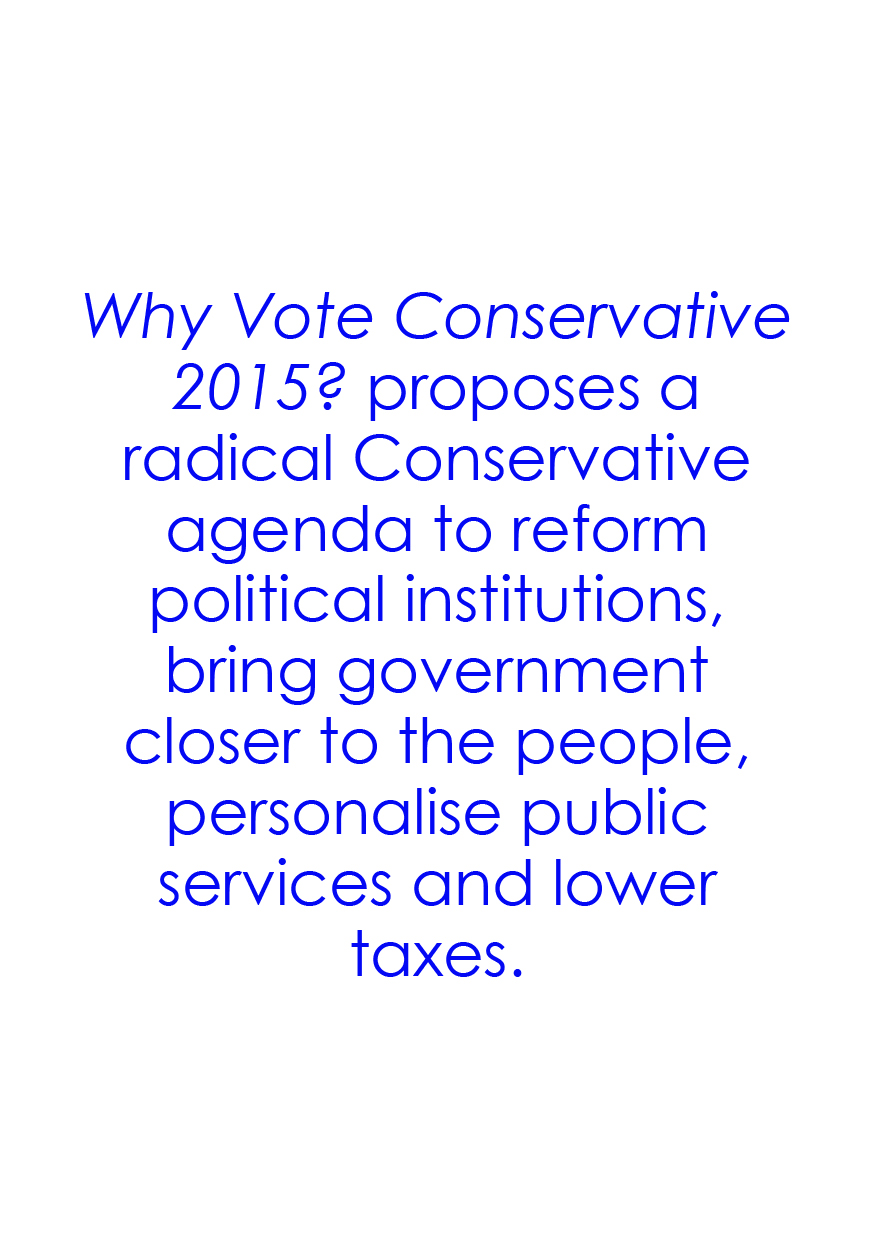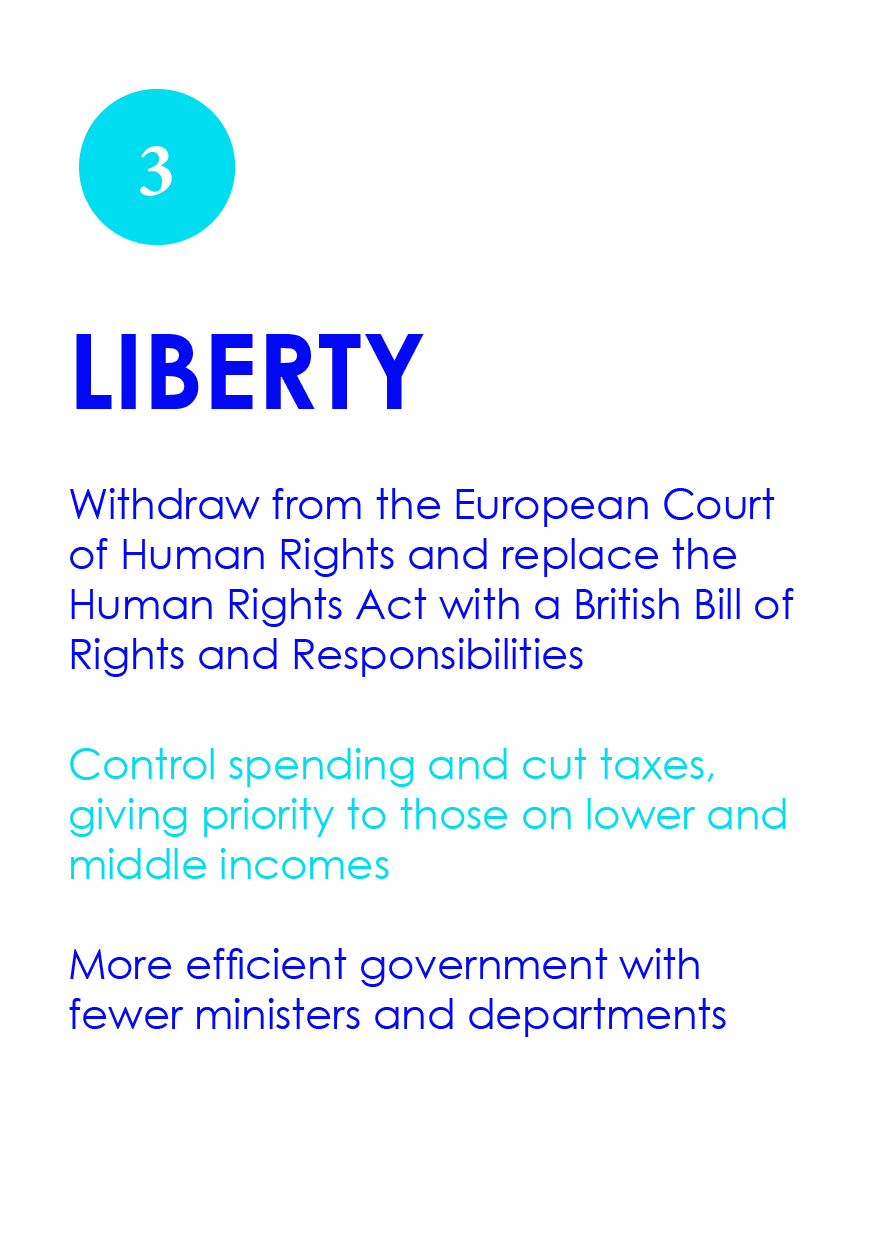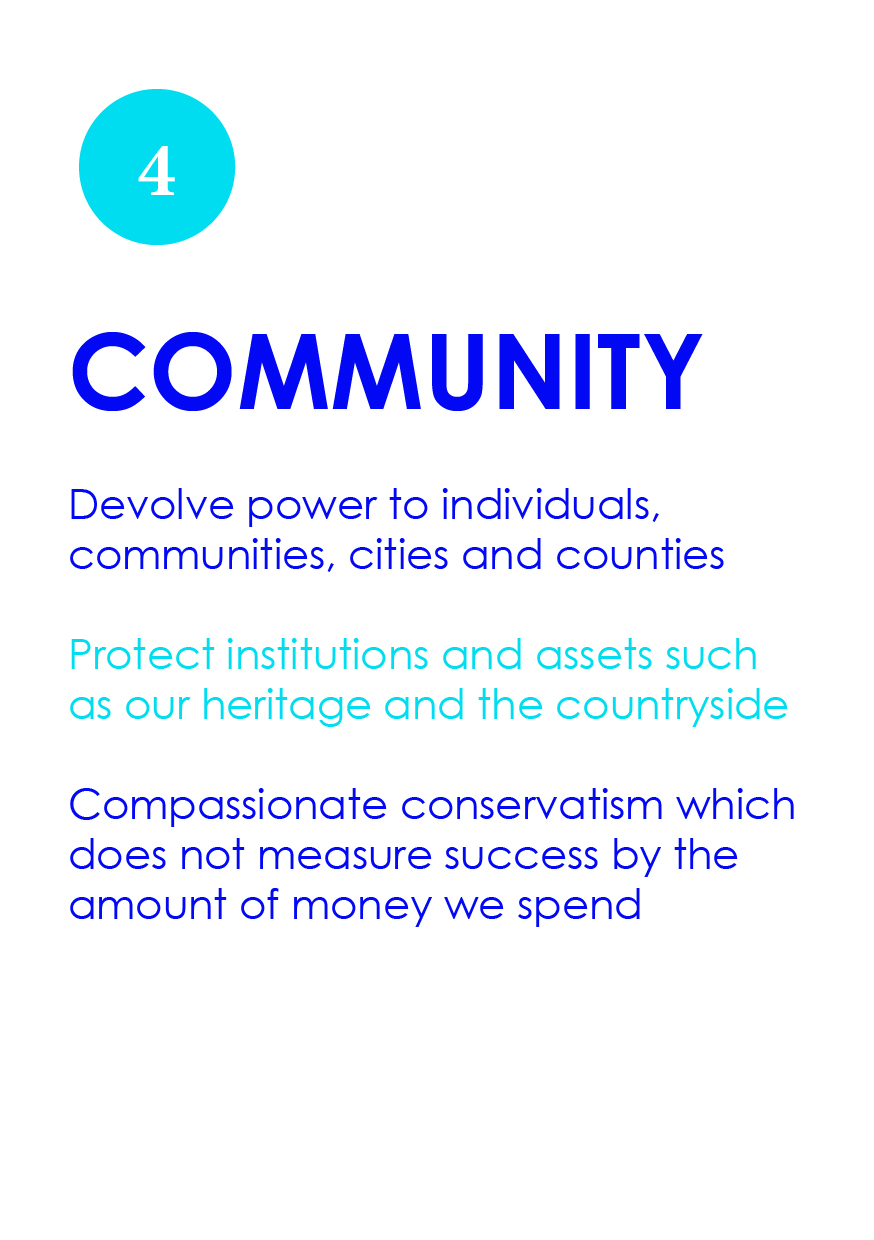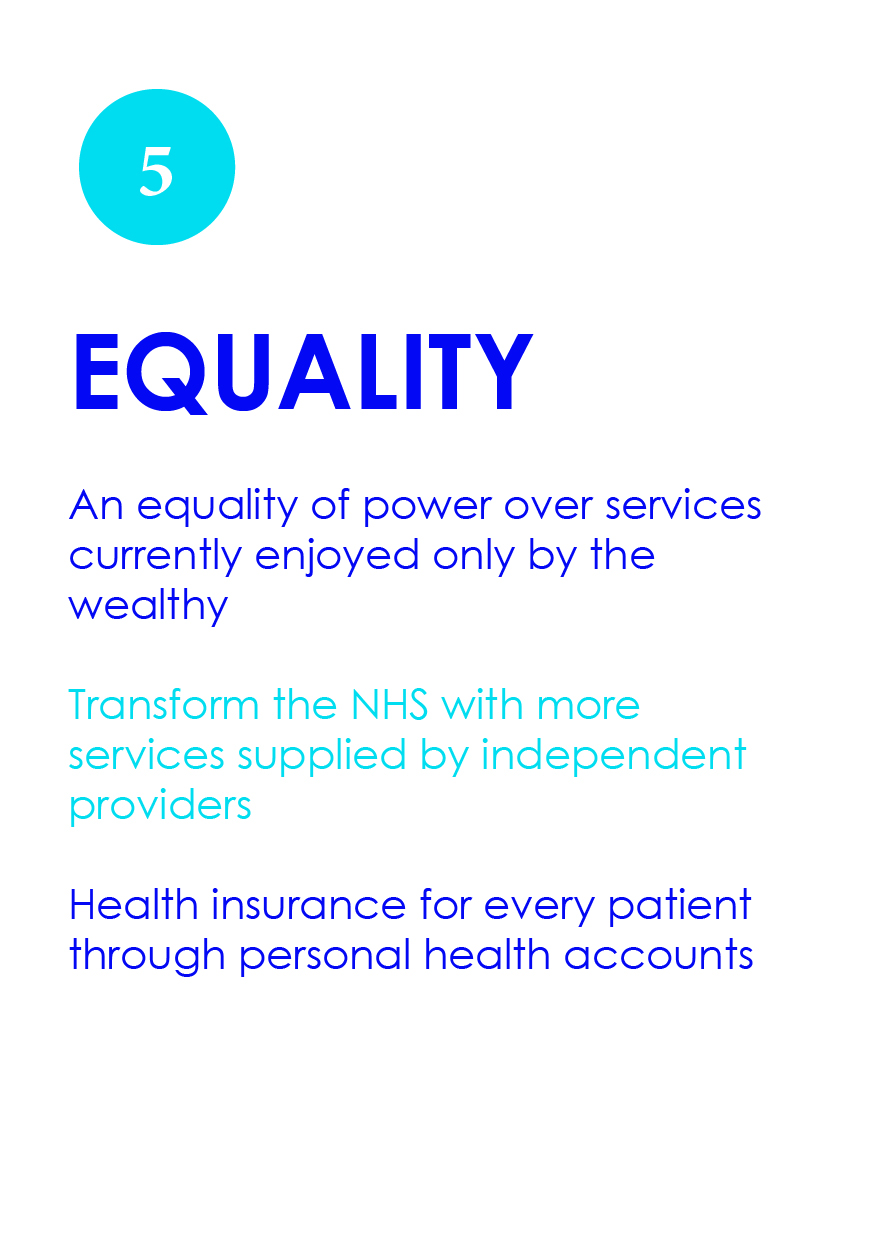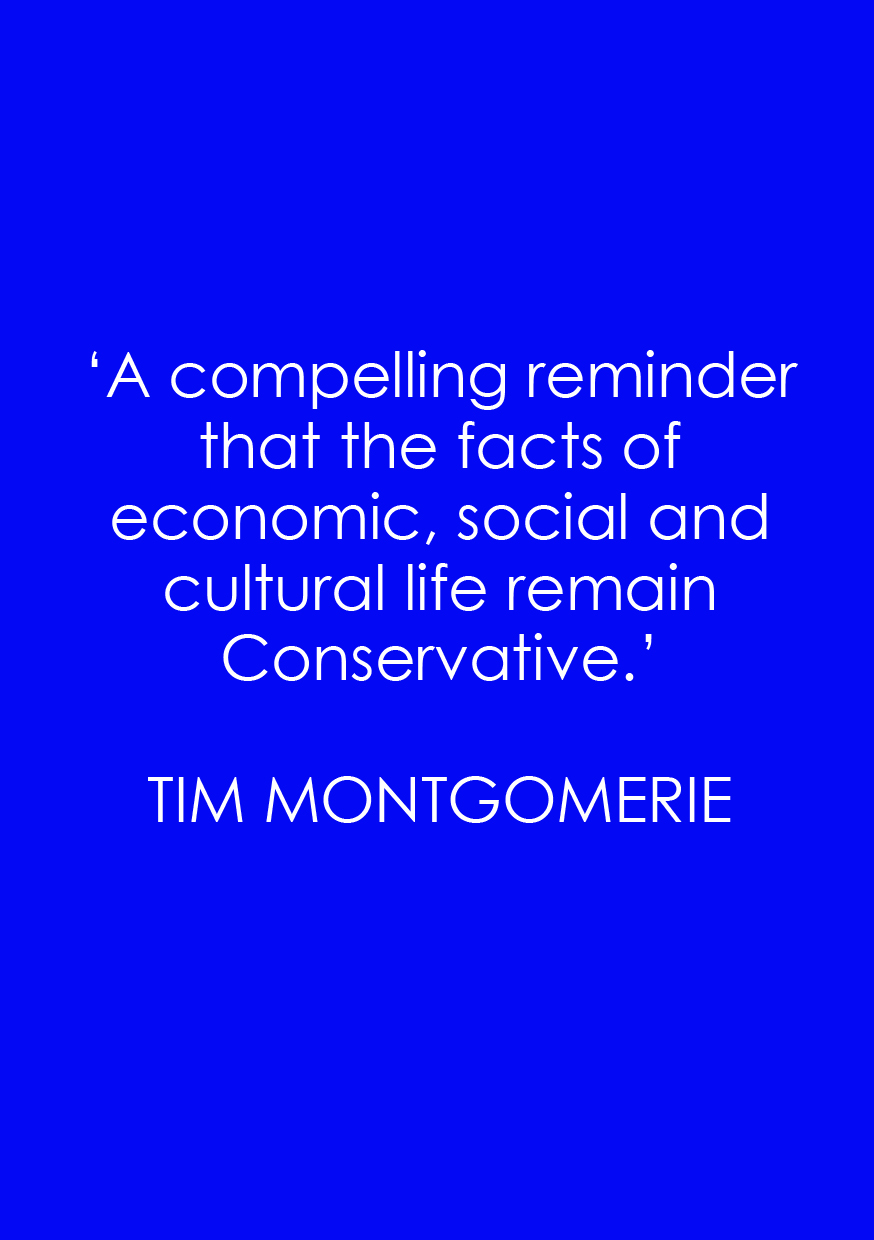When Iain Dale asked me to write the Why Vote Conservative? book as part of a series ahead of next year’s election, I said that I would not give a dull account of the Conservative Party’s achievements in government, or a compendium of its policies. Others will produce that, and there is a strong story to tell. Instead, in my book which is published this weekend, I set out to reflect on the challenges facing this country, and suggest how the next Conservative government should apply its principles to deal with them.
Conservatives can be proud of what has been achieved by a government that inherited from Labour the worst deficit in peacetime history – and is bringing spending under control and restoring economic growth; is capping welfare and reforming schools. And a major part of the agenda for the next Conservative government is clear: a referendum on Britain’s membership of the EU within three years, and continuing action to deal with the deficit. But what else? We yearn for majority government; to be able to kick the Liberal Democrats all the way down Whitehall. Now we must be clear about what we would do with this power.
It has been said that the Conservative Party exists to hold power, as though this could license an administration without purpose. It could not. We must have a purpose. Nor is it true that we’ve entered a post-ideological age, when all that matters is competent government. There are enduring ideological differences fundamental to the choice facing the public. The Left’s blind faith in the State allowed school standards to fall unchecked; it promoted generations of welfarism that trapped the weakest in poverty; it caused the excessive public spending that brought this country to the edge of bankruptcy.
Ed Miliband is the most left-wing Labour leader since Michael Foot: hostile to wealth creation and markets in the private sector, even more so to those in public services; unrepentant in his support for higher spending, taxation and borrowing; unreconstructed in his support for the welfare state. He supports deeper European integration and opposes a referendum on the EU. There is indeed an ideological choice at the next election, and we must frame it clearly.
It will not be enough, however, to point to the dangers of a Labour government, real though they are. We must also set out our stall. That requires us to assess the problems facing the country, and say how we will fix them. Today, in an age of disillusionment with politics, the greatest danger lies in saying only what we think the public want to hear. People are not only deaf to promises without conviction, they deeply mistrust them. It is not just our responsibility to say what we believe, it is the only way to win a hearing.
Our case should be that Britain is facing serious challenges that conservatism is best placed to meet. This is a globalising age. Ideas, technology, money and people move faster, farther and more cheaply than they ever have. Each of the main parties is defined by its reaction to it. UKIP fears the change as a threat. Labour denounces it as a platform for exploitation. Liberals welcome it as a blessing. We should embrace it as a fact. Globalisation brings huge benefits, while at the same time inflicting insecurity on people unequipped to deal with the increasing intensity of competition. Our job is to equip Britain and her people to meet its challenge.
Only if we continue to fix the economy and ensure competitiveness will living standards be protected. With an ageing population, rising costs and ever higher public expectations, nothing less than a transformation of the welfare state and public services is needed. Britain’s pay-as-you go system of providing pensions and personal services is based not on saving, but on meeting the current generation’s needs by taxing the next. It is unfair, inefficient and unsustainable.
Enduring Conservative principles should guide a policy renaissance. Our belief in security should lead us to embrace a new system of contributory welfare through personal savings accounts. That would also enable us to manage migration more effectively, since immigrants would be relying on their own countries’ welfare systems, not ours.
Today, the need for security takes many forms. Personal security should be enhanced by boosting home ownership. A new ‘Right to Own’ would enable social tenants to build a share of ownership in their properties. Our environmental security should be achieved through ‘Blue-Green’ policies based on markets and incentives, not ‘Red-Green’ policies which impose damaging costs and regulation.The deep Conservative belief in nation requires reform of the European Union to reject ‘ever closer union’ – and being prepared to leave if reform is not achieved. ‘One nation’ means closing the economic gap between London and the English regions, and introducing English Votes for English Laws at least, or an English Parliament.
Our attachment to liberty should underpin a continuing drive to reduce state spending and levels of taxation, both of which remain too high, because we know that every time the State confiscates personal income, freedom is reduced. We should guard liberties but be sceptical about the rights culture, withdrawing from the European Court of Human Rights.
But we are not a libertarian party: the Conservative belief in community is equally powerful. It should make us determined to devolve power to individuals, communities, cities and counties. And it should be reflected in a desire to protect our heritage and national assets such as the countryside. The ideal of equality is not an obvious one for Conservatives, but we should seek an equality of power over services that is currently only enjoyed by the wealthy. Miliband’s policy on healthcare remains rooted in the collective ideal of 1945, and his solution for failing services, higher taxation and spending, will fail again. We should embrace the ideal of universal healthcare through a 21st Century model which promotes choice and diverse provision, giving insurance to every patient through personal health accounts.
Similarly, we should give parents real power through personal education accounts, which would be allowed at schools run by mutuals and for profit. With a greater diversity of schools, selection could be increased. The principle of opportunity is doubly important for Conservative ambitions, to allow each person to fulfil their potential, but also to ensure that our nation can compete.
The most powerful moments in the most recent chapter of our Party’s history have been when we have re-told Conservative truths. When David Cameron spoke of aspiration; when George Osborne liberated pensions; when Iain Duncan Smith challenged welfarism or when Michael Gove drove through education reforms, our hearts beat faster, not because we knew that these policies were right, but because they spoke to our core beliefs. Holding to Conservative ideals, it turns out, energises our party and is popular in the country.
It was a new incarnation of conservatism, more than three decades ago, which rescued this country from what some thought was terminal decline. Today’s economic and political challenges are different, but equally profound. In the age of fierce globalisation, no country has an entitlement to success. But if we have the courage to take the right decisions now; if we are willing to apply our principles, a regeneration of conservatism can once again ensure Britain’s prosperity.
This article appears on ConservativeHome.
